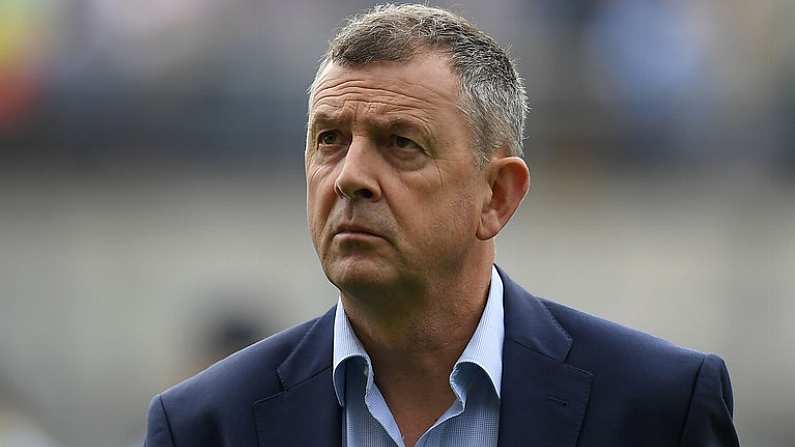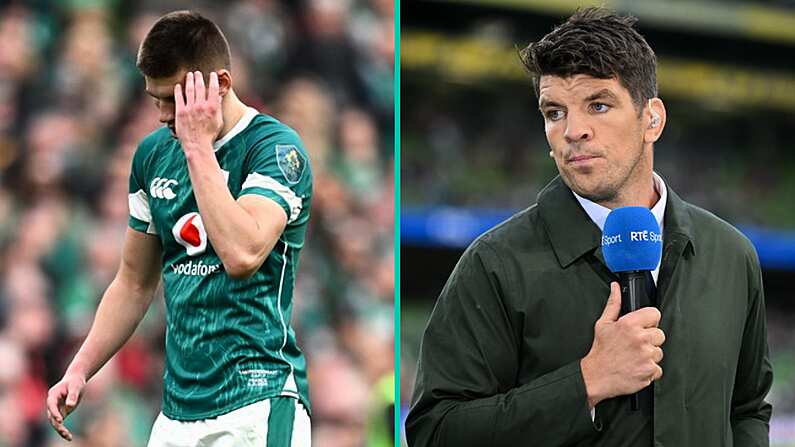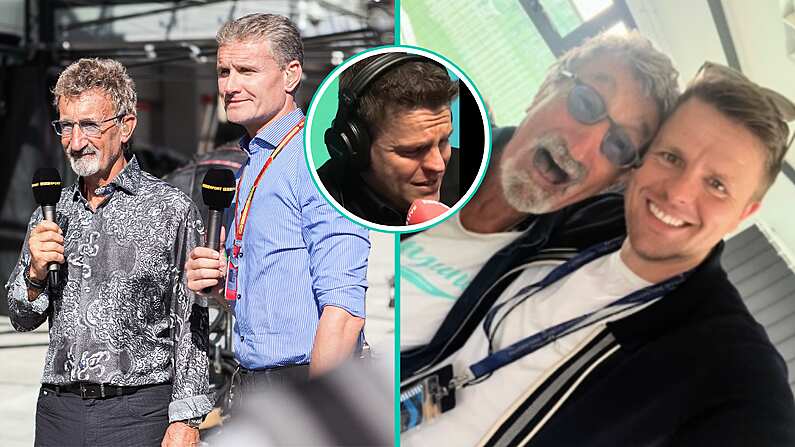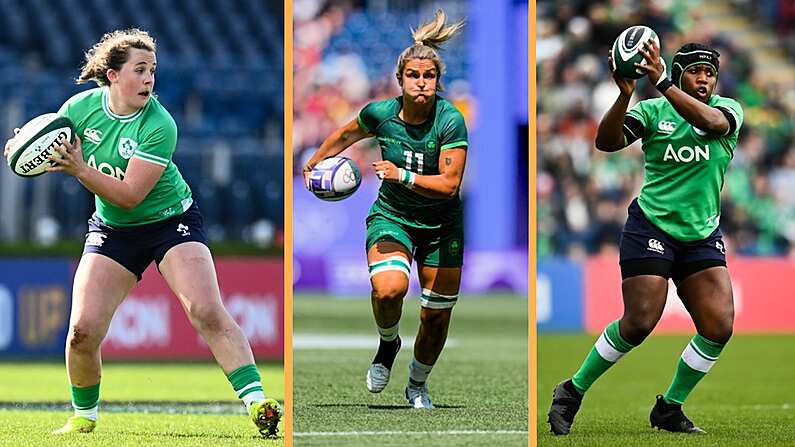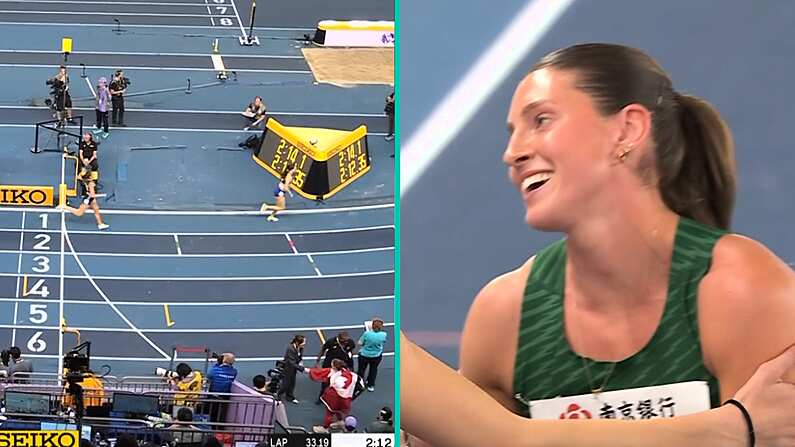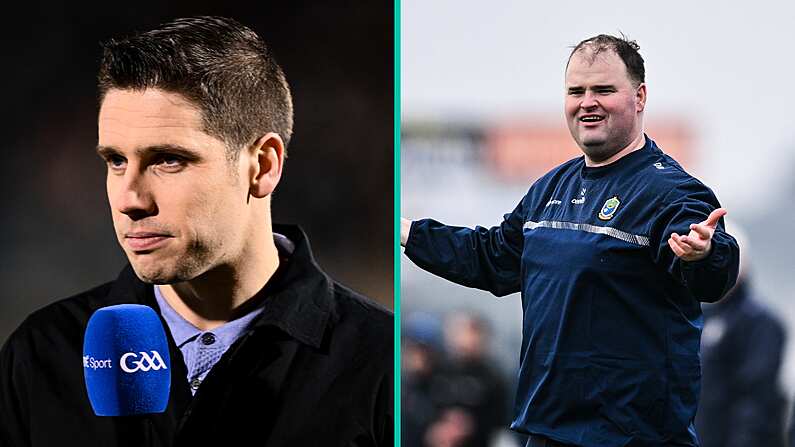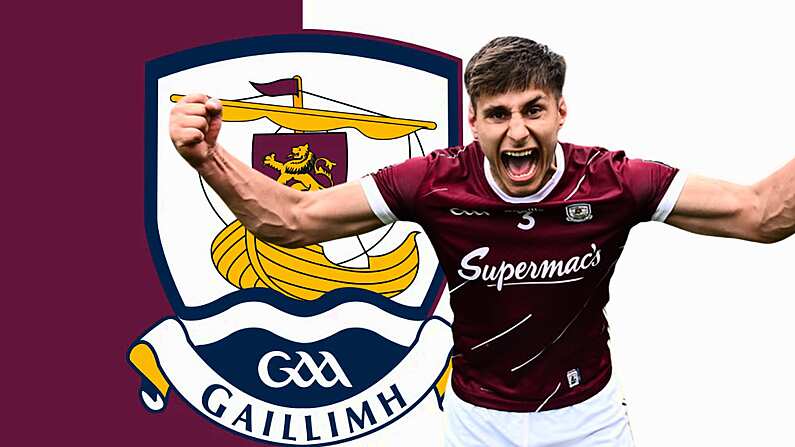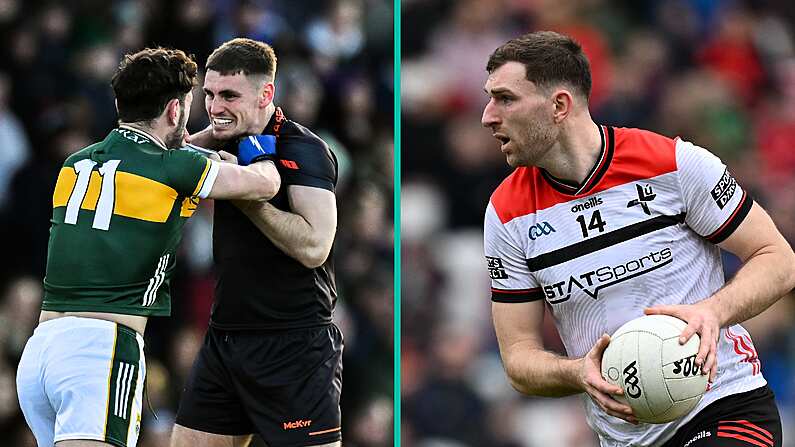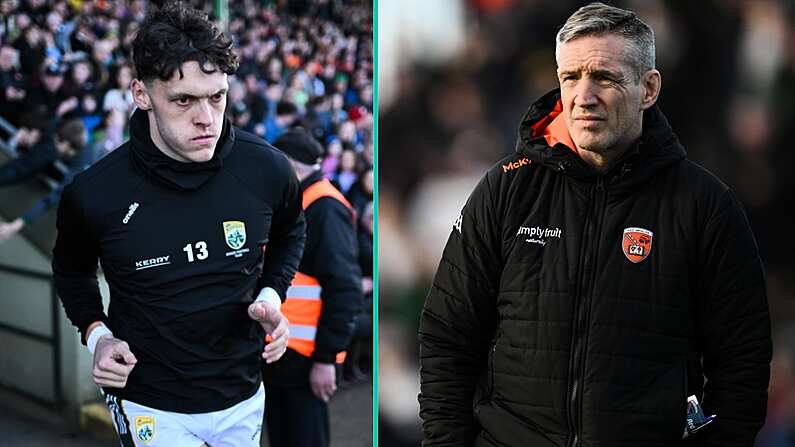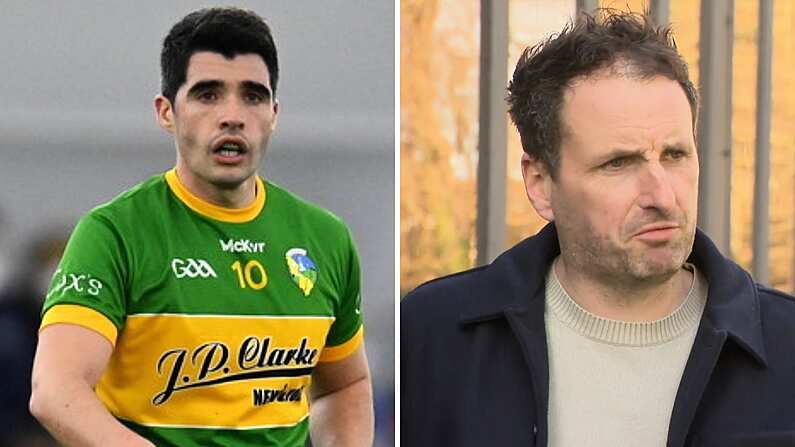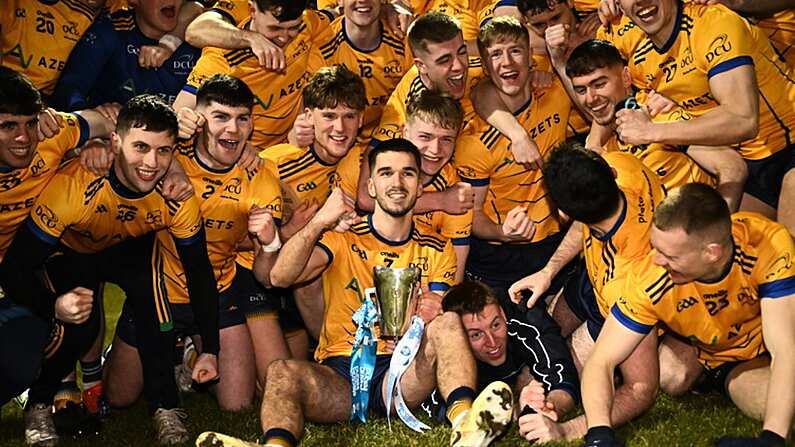In a sure sign that the season of goodwill is approaching, Dublin GAA CEO John Costello has released his reliably outstanding Annual Report. Dublin spend most of the year keeping stum on any criticism slung their way, only for Costello to wait until the final fortnight of the year to let rip in the most bombastic and readable official annual document in the GAA. Few documents in the Association, for example, make such liberal use of the exclamation mark.
Last year's featured references to Donalds Trump and Rumsfeld amid a fierce riposte to those who wish to split Dublin and those who target Diarmuid Connolly, and this year's report has not disappointed.
Here are a few of the standout points.
John Costello: Mythbuster
Costello pours scorn on those who believe Dublin have inherent advantages, and tells a tale that the Dubs are equally at the mercy of farce and penury as any other county team.
Some of the commentary around Dublin’s perceived ‘advantages’ - such as population and finance - is both repetitive and often, quite frankly, misinformed. Firstly, I'd like to address a number of recurring 'beliefs' about our current set-up at senior intercounty level.
Myth 1: Our senior teams have meals delivered to their homes on a daily basis or ever in fact. UNTRUE.
Myth 2: Our senior teams are given five-star, 'all-expenses paid' treatment. UNTRUE.
Here's a short story to illustrate such myths concerning our senior footballers! The hard yards every year are done in Innisfails GAA club in late winter/spring before they move to St Clare's, DCU for Championship preparation.
Last year, two training sessions were cut short owing to floodlight failure at Innisfails. On investigation, it turned out this was caused by a player, who had to return to the dressingrooms following injury on the pitch, who turned on a heater which cut short the circuit!
Nothing five-star about that!
In fact, Dublin have it harder than the rural counties
The ding-dong battle for hearts and minds is fierce in the capital, says Costello. More so than in the rural counties, in which the GAA is the heartbeat of the community.
Broadening out the debate, as I have often said the battle for young hearts and minds is ongoing - and tougher than ever. My belief is that it is tougher in Dublin than in any other county in Ireland. In rural areas, the local GAA club is often the very heart beat of the parish.
Playing underage for the local club is often a rite of passage for young people. This is less so in the larger suburban areas of Dublin.
But through the wonderful work of our clubs and schools, we can reach as many young Dublin children as possible and introduce them to what will hopefully be a lifelong love of our national games. But we are not in a situation where we are turning thousands of children away from the gates of our clubs every day.
Other sports in the capital are well established, well organised and often directly in competition with our games. Add in the many other non-sporting distractions of a large city and you have a real challenge to attract young players. It may surprise some but the penetration of the GAA in certain areas of Dublin remains relatively low.
This too remains an ever present challenge.
Costello goes all 'Fr Ted at the Golden Cleric Award'
"All-Ireland Football Final Apres Match" is the sub-heading on the most righteous - and readable - part of the report. Costello provides a virtuoso response to critics of the senior football team. Here's how Costello describes the criticism, which ends with the Dubs losing the GPO, for some reason.
A quick spin through this type of 'commentary' post this year's decider against Mayo goes something like this - full-time whistle sounds; Stephen Cluxton lifts Sam; split Dublin in two, actually make that four; these conceited Dubs might be liked by some but they'll never be loved; these unpatriotic Dubs they should be forced to surrender the GPO!
It gets better.
Some of the 'rhetoric' was in fact so puerile it was like a collaboration between Roger Hargreaves, the author of the Mr Men series of books, and the writers of that timeless classic, The Magic Roundabout!
There used by a perennial column written in some publication about the dangers of the 'Cult of the Manager' maybe some commentators should examine the 'Cult of Me' which seems very much in vogue with some of them.
For example have a go at the Dubs, then sit back, get invited as a paid guest onto various radio shows etc - kerching, cha-ching, cha-ching, kerching!
....and better.
We've been down this road before with regard to the splitting of Dublin and I don't wish to copy and paste old convention reports here. Suffice to say that sense of place and identity is one of the core principles of Gaelic games. Dublin is a united county.
However, this theme was given a fresh lick of paint this summer when it was implied that Dublin GAA was 'short-changing' young players in the capital and that it would be in the greater good if Dublin were split, for their own sake, if you wish. I presume that was an attempt at engineering dissent and not really a genuine, heartfelt plea for the 'boys on the hill'
to be thrown a Dublin jersey?Maybe, if the powers that be and all other counties were in agreement, Dublin could enter a senior development squad in Division 4 of the league? Yes, didn't think so! Moving on.
This is just the warmup for the piece de resistance. An emphatic defence of Jim Gavin, along with a sly dig at Mayo. Gavin was heavily criticised after the All-Ireland final by Sunday Independent journalist Paul Kimmage, who criticised his reserved attitude in front of the media along with the spoiling tactics of his team in the final couple of minutes of the final.
Our senior football manager, Jim Gavin, was the target on several occasions during the summer of plenty of hostility - one paper declaring mid-summer that Jim "was losing it" and that it was time for Jim to be moved on as "Dublin now need a true leader". Jim's 'crime' was standing up for one of his players, Diarmuid Connolly (who knows he crossed the line against Carlow) in the face so much rage and counter-rage.
Then, after the All-Ireland final, Jim was again held up to much ridicule and inaccurate reporting. The atmospheres in the rivals’ dressingrooms after an All-Ireland final could not be any more polar. One utter delirium, the other utter dejection.
As Jim, rightly, does not see his first priority as Dublin manager to provide a 'Turn Down' service for the media, he was accused of effectively being very hostile and that his delay in getting to the media area was provocative.
Perhaps we'll have to get Jim to wear a GPS tracker in future, to give up to the second information on his location. In fact, I think there was a spare one knocking around on All-Ireland Final Sunday!
The truth of the matter is different though. After celebrating and congratulating his players, management and backroom staff, the squad and members of management made time for pictures with a young Derry supporter with special needs. This young lad and his family had requested that he could spend some time with the Dublin players and management after the game and the team and management gladly obliged.
Eamon Dunphy joined this bandwagon, in which he asserted that this Dublin team would never be loved. Gloriously, Costello labels Dunphy "Mr. Flip Flop".
In response to 'Mr Flip-Flop', neither his real name nor a real Mr Men character, obviously these Dublin players will never be loved the length and breadth of the country, but they are liked, admired and respected by plenty outside the county.
In fact, in terms of within the county, I don't think, in my lifetime association with Dublin, that I have ever witnessed as
strong a connection between our supporters and the current team and vice versa.
Costello sounds caution about the change to the kick-out rule
From January 1st, the kick-out rule in Gaelic football will be amended. Now, the ball must travel over the 20-metre line before being caught by the 'keeper's teammate. The kick-out has been mastered by Stephen Cluxton, and is the rock upon which Dublin's ever-sprawling church is built. Costello says as much in his report, although does strain to point out that Dublin may not be affected by this to the extent that many believe. "It should be added that contrary to a lot of statements, Dublin players don’t actually collect the ball inside their own 20-metre line, as often as is suggested".
Costello does not want this change to the kick-out to be part of a wider shift in the game.
I hope this latest rule change isn't part of a trend, especially when taken in tandem with the ‘mark’ and some talk of umpires being tasked with controlling delivery of the ball to 'keepers.
Is it possible that there is a small but influential number in our games that are trying to turn back the clock to an era of catch-and-kick, where sharpness of thought and speed of movement are rendered less important?
If so, Gaelic football would be the poorer for it.
Although one change deserves support
Costello titles the Super 8s a "worthwhile experiment", citing the bonus that the "so-called whipping boys" will be given with home advantage, without a hint of irony.
In the last half-decade we have seen a handful of unheralded counties (Cavan in 2013, Fermanagh in 2015, Tipperary and Clare in 2016, Roscommon this year) reach the last-eight.
Nor was it a complete humiliation for all of them once they got there: Fermanagh kept the Dubs to single digits; Roscommon's mauling by Mayo was preceded by an edge-of-the-seat stalemate; while Tipperary actually burst through the glass ceiling to reach the last-four.
Maybe that couldn't happen under the new round-robin structure … but don't dismiss the possibility entirely, especially with the so-called ‘whipping’ boys enjoying home advantage in one of their three group games.
In summary, this is a worthwhile experiment. Let's not draw any conclusions before the results are in.
We await 2018's installment.

